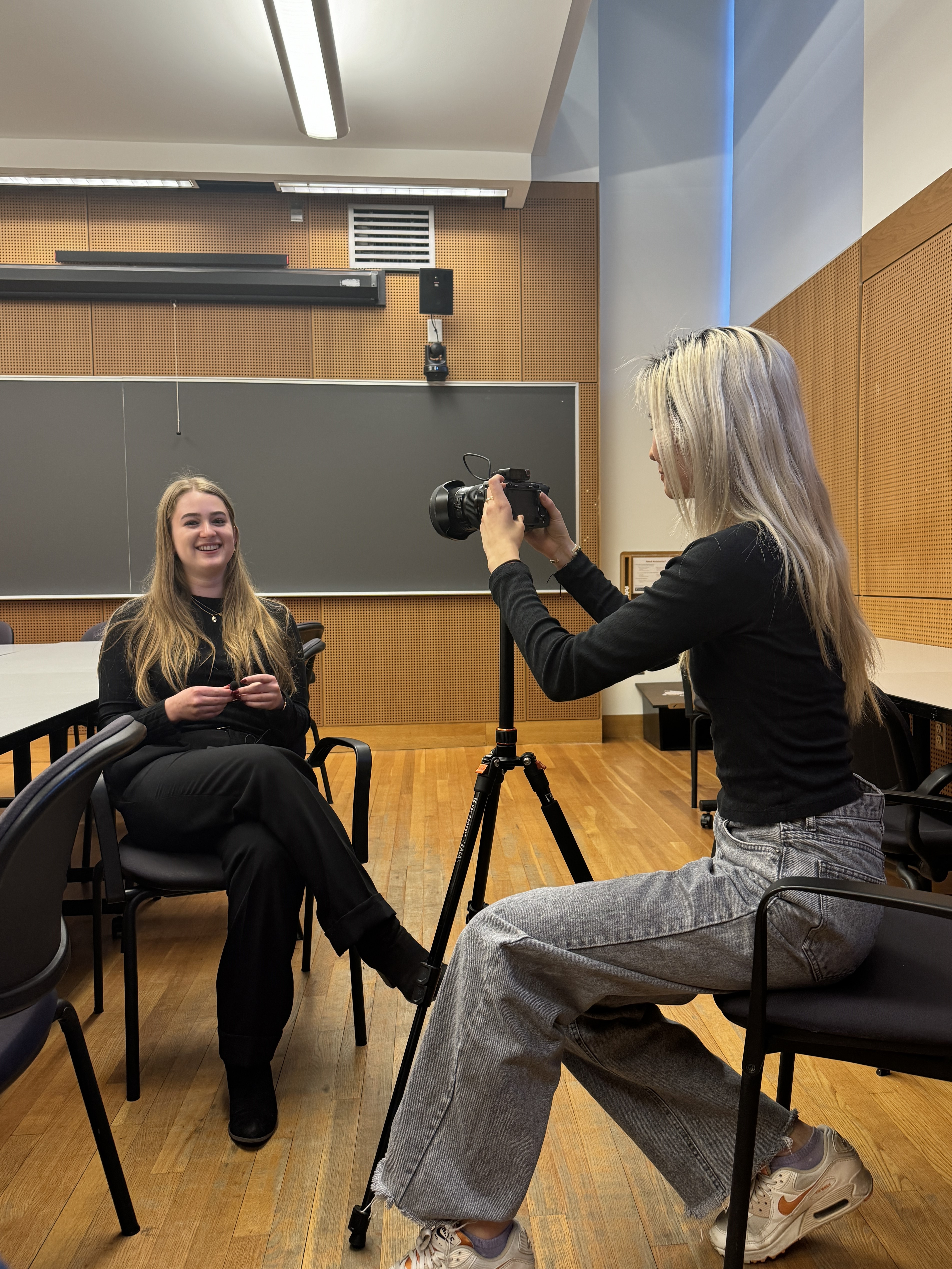Penn Global Seminars Bug Spray, Bug Spray, and… More Bug Spray?
Basic Page Sidebar Menu Penn Abroad
January 13, 2025
By
Rachel Guan, Wharton '26
PGS: Global Jewish Communities
Last week my dad asked me why I have 4 packs of Deet in my Amazon cart.
Looking down at my suitcase now the day before my trip, I realize I may have gone a little overboard. But honestly, can you ever be too prepared when mosquitoes are involved? As I pack for this trip, I’ve got four packs tucked neatly into my bag—one for me, one for my friend, one as a backup, and one in case someone else forgets theirs. It’s a foolproof plan, right?
But packing isn’t just about bug spray and sunscreen. Preparing for this trip has been an ongoing process, thanks to everything we’ve done in class with my professors, Professor Sara Byala and Professor Peter Decherney, and our TA, Dr. Manya Oriel Kagan.
Over the past few weeks, I’ve learned so much through CIMS 2002: Global Jewish Communities, a course that surveys global Judaism with particular fieldwork focused on the Abayudaya Jewish community in and around Mbale, Uganda. The class itself is highly interdisciplinary and harmonizes a blend of cinema studies, filmmaking, history, and political science.
One of the most interesting topics we explored was the role of storytelling in understanding identity, both within the Abayudaya community and in the broader world of Judaism. Through class discussions and guest speakers, I saw how personal narratives can reveal so much about a community’s values, challenges, and aspirations. It made me think about how I interpret stories—how my own assumptions might filter what I hear. I’m excited to put this into practice on the trip, to listen and reflect on the deeper meanings behind what’s shared.
A particular class that stood out to me was our first class, which involved a discussion on our first reading assignment, Uncomfortable Conversations with a Jew. I think really set the tone for the semester. What does it mean to be Jewish? Who gets to decide? These questions shaped every discussion we’ve had since, forcing us to confront not only our assumptions about Judaism but also our preconceived notions of identity and belonging.
The guest speakers we’ve had in class have brought these questions to life in powerful ways. Shoshana Kirye, an African American Jewish woman now living in Uganda, made me think deeply about what it means to navigate multiple, intersecting identities. Her insights felt especially relevant as we prepare to meet the Abayudaya community, a group whose very existence challenges conventional narratives about Jewish identity. I also loved the class where we heard from Rabbi Jeffrey Summit—his work (a Grammy-nominated CD “Abayudaya: Music from the Jewish People of Uganda”) opened my eyes to the ways art and music are so intertwined within the preservation and evolution of culture.
And the films we’ve watched, like 7 Days in Entebbe and Shalom Putti, have been equally valuable. We not only contextualized more of Uganda’s history and culture, but also assessed broader questions in filmmaking and storytelling. How do you balance representation with accuracy? How do you avoid sensationalizing a story while still making it engaging? These are questions we’ve discussed at length, critiquing cinematography and analyzing how certain choices might unintentionally perpetuate biases.
One of the things that I’ve appreciated most about our class is how everything connects and how incredibly hands-on it’s been. From learning about cinematography and narrative interviewing techniques with Professor Decherney to practicing with cameras and sound equipment, we’ve spent weeks preparing for our fieldwork. 
My role as the interviewer for our smaller subgroup in class has been particularly exciting. In the last couple weeks, we’ve had the chance to practice interviewing a friend every week, and while we practiced adjusting our sound and lighting, I practiced refining my questions, pace, and direction. I’ve also been thinking a lot about how to ask questions that encourage a form of personal narrative storytelling that doesn’t allow my own perspectives, assumptions, and responses to bleed in.
Finally, learning about the mission of the partner we’re working with, the USC Shoah Foundation (whose core purpose is to “give opportunity to survivors and witnesses to the Shoah—the genocide of the Jews—to tell their own stories in their own words in audio-visual interviews”), adds another layer of significance, as our films will become part of their Contemporary Antisemitism collection. Knowing that our work will contribute to such an important archive has made me approach every aspect of this project with even more care.
As I prepare to travel, I’ve been thinking about the assumptions I’m bringing with me—about Uganda, about the Abayudaya, and about what it means to do “meaningful” fieldwork. I want to be open to being wrong, to being surprised, and to learning in ways I can’t yet anticipate. What drew me to this class in the first place was its interdisciplinary nature and its use of film and storytelling as a means of connection. I’ve always loved seminar-style classes, and this one has exceeded my expectations. The more I’ve learned, the more I realize how little I actually know, which is exciting.
So, as I finish packing my bug spray and a bunch of cargo pants and long skirts, I’m looking forward to everything ahead—the stories we’ll hear, the people we’ll meet, and the lessons we’ll carry back with us. If this class has taught me anything so far, it’s that preparation is important, but it’s the unexpected moments that often make the biggest impact.
Brb... gonna go spray some bug spray on my clothes.

Penn Global Seminars combine intensive semester-long study with a short-term travel component that deepens your understanding of concepts discussed in the classroom. Courses options are available for Penn undergraduate students across majors and years.

